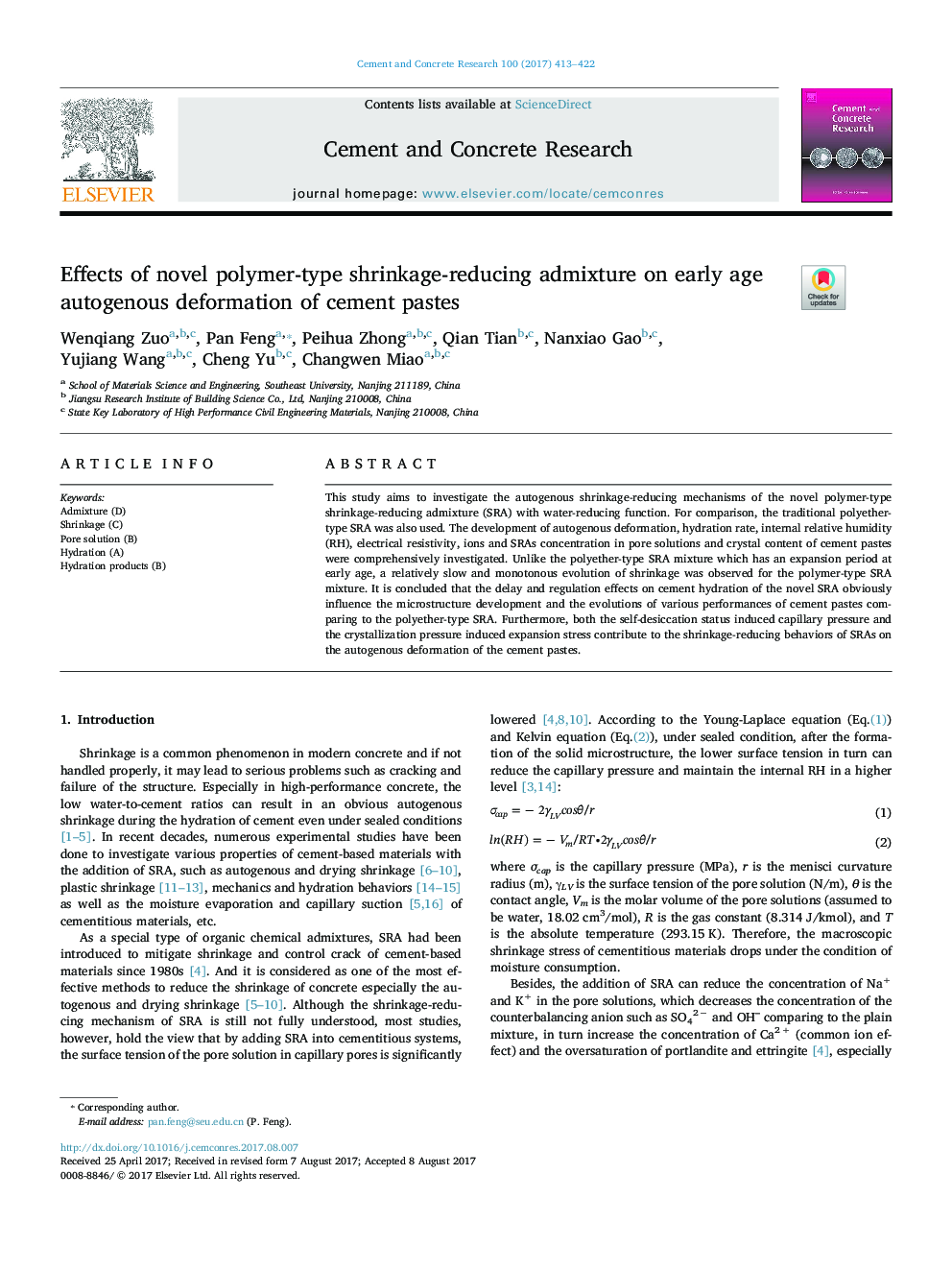| Article ID | Journal | Published Year | Pages | File Type |
|---|---|---|---|---|
| 5437038 | Cement and Concrete Research | 2017 | 10 Pages |
Abstract
This study aims to investigate the autogenous shrinkage-reducing mechanisms of the novel polymer-type shrinkage-reducing admixture (SRA) with water-reducing function. For comparison, the traditional polyether-type SRA was also used. The development of autogenous deformation, hydration rate, internal relative humidity (RH), electrical resistivity, ions and SRAs concentration in pore solutions and crystal content of cement pastes were comprehensively investigated. Unlike the polyether-type SRA mixture which has an expansion period at early age, a relatively slow and monotonous evolution of shrinkage was observed for the polymer-type SRA mixture. It is concluded that the delay and regulation effects on cement hydration of the novel SRA obviously influence the microstructure development and the evolutions of various performances of cement pastes comparing to the polyether-type SRA. Furthermore, both the self-desiccation status induced capillary pressure and the crystallization pressure induced expansion stress contribute to the shrinkage-reducing behaviors of SRAs on the autogenous deformation of the cement pastes.
Related Topics
Physical Sciences and Engineering
Engineering
Industrial and Manufacturing Engineering
Authors
Wenqiang Zuo, Pan Feng, Peihua Zhong, Qian Tian, Nanxiao Gao, Yujiang Wang, Cheng Yu, Changwen Miao,
